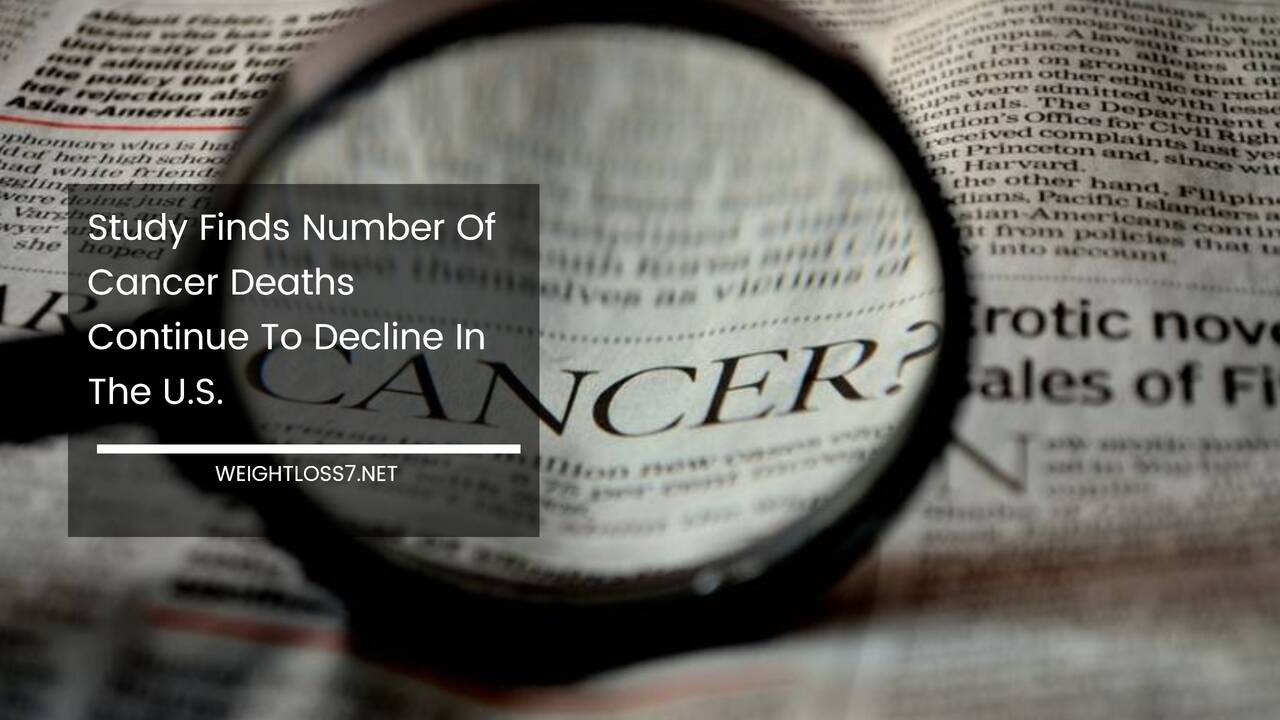Study Finds Number Of Cancer Deaths Continue To Decline In The U.S.

The number of deaths related to cancer continue to decline in the U.S., according to a recently release report. In fact, researchers discovered that over the last 20 years, an individual’s overall risk of dying from cancer has dropped by 20 percent.
The most precipitous decline in cancer related deaths has been among middle-aged black men, a group that has seen its rate of cancer drop by an impressive 50 percent, report researchers from the American Cancer Society as part of this latest study.
However, despite this encouraging drop, black men still have the highest incidence of cancer and cancer related deaths of any ethic group, reports researchers. Roughly twice the level as Asian Americans, who enjoy the lowest rates of cancer and cancer related deaths.
The results of this study were published in the January edition of A Cancer Journal for Clinicians.
Encouraging News
Researchers discovered a decline in the number of cancer deaths between 1991 and 2010 varied depending on sex, race, and age. For example, while black men between the ages of 40 to 49 enjoyed a 55 percent reduction in cancer related death, researchers found no decline among white women over the age of 80.
Given credit for the progress made against the number of cancer related deaths reported each year were advances made in screening, prevention, and treatment, reported the study.
Researchers also added that the dramatic decline in the number of deaths among black men was mostly likely due to a decrease in smoking.
A decrease in smoking among all age and ethic groups also helped lower the number of deaths related to lung cancer.
However, certain forms of cancer, such as pancreatic cancer – which has no early screening and treatment for which often comes too late – still remain as life threatening and deadly as ever.
On a more positive note, researchers do expect the number of annual cancer deaths in the U.S. to continue to decline as routine screening for certain forms of the disease become more commonly used and more Americans gain access to health care through the Affordable Care Act.
Currently, individuals without coverage face the biggest obstacle when it comes to screening.
Despite the positive nature of these findings, researchers still caution that more needs to be done to close the improvement gab between difference ethnic groups.
While reducing the number of cancer related deaths among African American men by 50 percent over the last 20 years ranks as remarkable progress, black men still have a significantly higher risk when compared to white men for nearly every major form of cancer and for all types of cancers combined, warned researchers.
Progressing In The Right Direction
The rates of cancer related deaths has now continued to decline for the 10th straight year. While researchers believe rates continue to decline in part because of better screening techniques – especially screening for prostate cancer – new treatments and a better understanding of the risk factors for the disease have also played a role.
In recent years, studies have found that everything from a woman’s height to suffering from gum disease and tooth loss can act as a predictive risk factor for various forms of cancer.
In 2014, researchers estimate the number of new cancer cases will top 1.5 million and that approximately 586,000 cancer related deaths will occur in the U.S.
While the number of new cancers and cancer related deaths continue to climb as population levels rise, the rates of the disease is declining.
Among men, colon, lung, and prostate cancer will account for nearly half of all new cancer cases, with prostate accounting for nearly 25 percent alone.
For women, colon, lung, and breast cancer account for 50 percent of all new cancer cases, with breast cancer estimated to account for 29 percent alone.
As more research provides invaluable insight into the causes and prevention of this terrible disease, science may one day yet turn the tide against cancer.

















